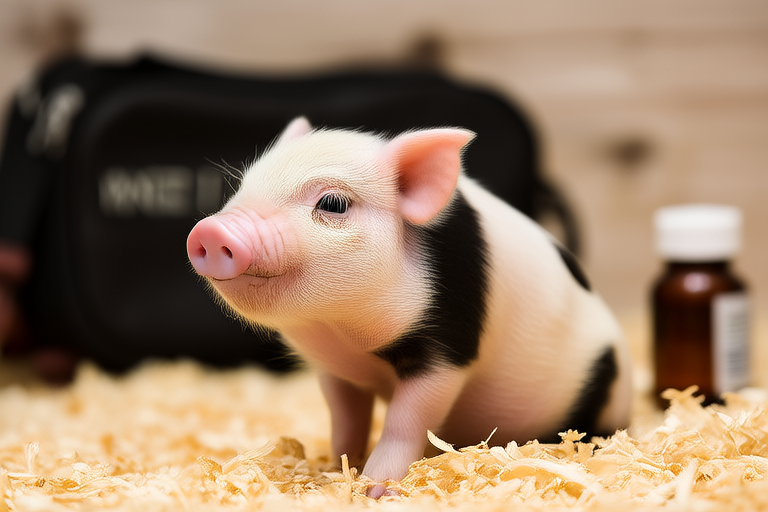Ultimate Guide to Guinea Pig Health & Wellness
Welcome to the ultimate guide to guinea pig health and wellness. This comprehensive resource covers essential aspects of guinea pig care, including diet, exercise, housing, grooming, common health issues, signs of illness, regular check-ups, vaccinations, dental care, and tips for choosing a veterinarian specializing in exotic pets. Whether you’re a new or experienced owner, this guide will provide you with the knowledge and practical advice needed to ensure your guinea pig lives a long, healthy, and happy life.
Diet
A balanced diet is crucial for maintaining your guinea pig’s overall health. Guinea pigs require a variety of nutrients, including vitamin C, which they cannot produce themselves. A typical diet consists of fresh hay, high-quality pellets, and fresh vegetables. Timothy hay is recommended for adult guinea pigs, while younger ones may benefit from alfalfa hay. Pellets should be fortified with vitamin C and provided in limited quantities to avoid obesity. Fresh vegetables like bell peppers, spinach, and broccoli can be offered daily, but remember to introduce new foods gradually to prevent digestive upset.
Exercise
Guinea pigs need regular exercise to maintain their physical and mental well-being. Provide them with a spacious cage that allows for ample movement and exploration. Additionally, supervised playtime outside the cage in a safe, enclosed area is beneficial. Ensure the play area is free from hazards and potential predators. Exercise wheels designed specifically for guinea pigs can also be used, but monitor them closely to prevent injury.
Housing
Selecting appropriate housing is vital for your guinea pig’s comfort and safety. Opt for a cage with a solid bottom to prevent injuries from wire flooring. The cage should be large enough to allow your guinea pig to stretch out fully and move around comfortably. A minimum size of 7.5 square feet is recommended for one guinea pig, with additional space for each additional pet. Provide bedding made from safe materials such as paper-based products or fleece. Ensure the cage is placed in a quiet, draft-free area away from direct sunlight and extreme temperatures.
Grooming
Grooming is an important aspect of guinea pig care. Regular brushing helps remove loose fur and prevent matting, especially for long-haired breeds. Use a soft-bristled brush and be gentle when handling your guinea pig. Nail trimming may be necessary if they don’t wear down naturally. Consult a veterinarian or a professional groomer if unsure about how to trim nails safely. Bathing should be avoided unless absolutely necessary, as it can stress your guinea pig and disrupt their natural oils.
Common Health Issues
Guinea pigs are susceptible to various health issues. Dental problems are common due to improper diet or genetics. Signs include difficulty eating, drooling, and weight loss. Respiratory infections can occur if the environment is too cold or damp. Symptoms include sneezing, wheezing, and discharge from the nose or eyes. Diarrhea can result from dietary changes or parasites. Monitor your guinea pig’s behavior and consult a veterinarian if you notice any unusual symptoms.
Signs of Illness
Recognizing signs of illness early is crucial for prompt treatment. Common indicators include lethargy, loss of appetite, excessive thirst, changes in bathroom habits, and abnormal behavior. If you notice any of these signs, contact your veterinarian immediately. Early intervention can significantly improve the chances of recovery.
Regular Check-Ups
Scheduling routine veterinary check-ups is essential for preventive care. Annual visits allow veterinarians to assess your guinea pig’s overall health, address any concerns, and recommend appropriate treatments. These check-ups can help identify potential health issues before they become serious, ensuring your guinea pig remains healthy and vibrant.
Vaccinations
Unlike many other pets, guinea pigs do not require vaccinations. However, they may still benefit from certain preventive measures, such as parasite control and regular deworming. Consult your veterinarian for recommendations tailored to your guinea pig’s specific needs.
Dental Care
Dental health is critical for guinea pigs, as their teeth continuously grow throughout their lives. Providing plenty of hay and chew toys encourages natural tooth wear. Monitor your guinea pig’s teeth regularly and consult a veterinarian if you notice any abnormalities, such as overgrowth or misalignment. Professional dental care may be necessary to address severe issues.
Tips for Choosing a Veterinarian Specializing in Exotic Pets
When selecting a veterinarian for your guinea pig, look for someone with experience in treating exotic animals. Research potential veterinarians by asking for recommendations from fellow guinea pig owners or searching online for reviews. During consultations, inquire about their experience with guinea pigs and other small mammals. Ensure they have access to specialized equipment and medications for treating exotic pets. Building a relationship with a trusted veterinarian will provide peace of mind and ensure your guinea pig receives the best possible care.
In conclusion, proper care and attention are essential for keeping your guinea pig healthy and happy. By following the guidelines outlined in this ultimate guide, you’ll be well-equipped to provide your furry friend with the love and care they deserve. Remember, a little effort goes a long way in ensuring your guinea pig enjoys a long, healthy, and joyful life.
